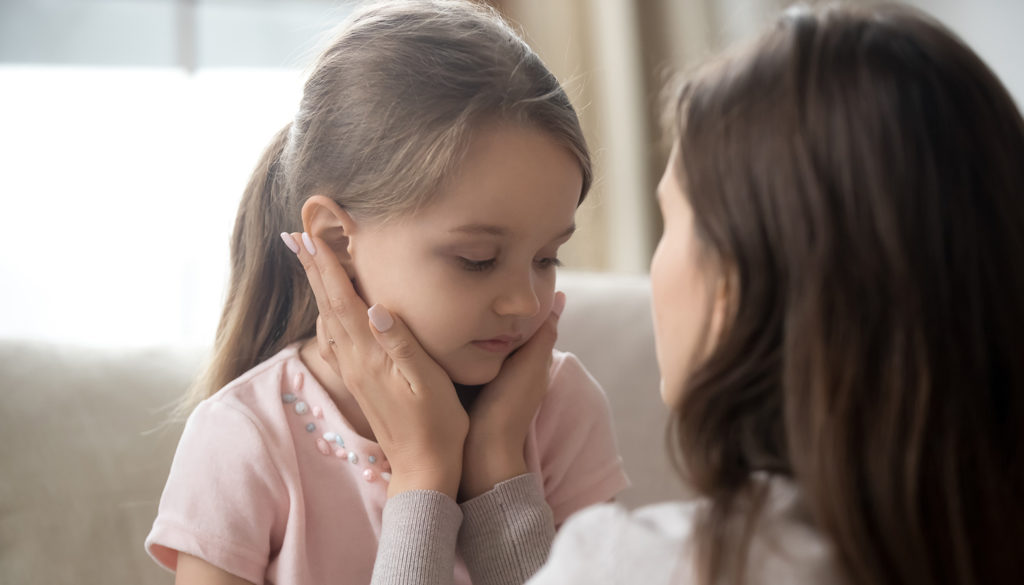“Bad Therapy: Why the Kids Aren’t Growing Up” (Penguin Random House, $30) has become an instant best-seller.
Author Abigail Shrier, an LA-based investigative journalist, also wrote “Irreversible Damage: The Transgender Craze Seducing Our Daughters” (Regnery, $26). Her new book promises to be equally controversial.
Basically, says Shrier, the kids aren’t growing up because — with urgent encouragement from the pharmaceutical and mental health industries — they’ve been hovered over, catered to, coddled, protected, consulted as to their preferences, accommodated to within an inch of their lives, shielded from all risk, and medicated to the gills since practically the moment they exited the womb.
Some of the most privileged human beings ever born, they’ve been given to believe they’re “traumatized.” They’re asked the minute they enter school in the morning how they “feel.” They’ve been sent to therapists, given diagnoses, and labeled special problem people: a badge they come to wear with honor.
Their entire childhoods they’ve hardly enjoyed an unsupervised, unplanned, unscheduled moment. They’re surveilled at all times by their mothers, who constantly text, track their whereabouts, and apprise themselves of the kids’ daily homework assignments.
If taking a classroom test makes the kid anxious, they’re allowed to go sit in a room by themselves. If they don’t like what’s for dinner, they throw tantrums and insist on having an alternate meal prepared. They’re shielded from the slightest discomfort and praised for the smallest accomplishment.
When I reported this state of affairs to a few of my six siblings we howled with laughter. The idea of turning up our noses at food — any food — was ludicrous. “Okay, starve,” we would have said. “Give it to us.”
We’d bring home straight-A report cards: “Good for you,” Mom would say. “I need you to fold the laundry.”
In those long-ago days, we had no computer games to absorb us. We arrived home from school, changed our clothes, and disappeared until supper.
We hung out at a cattail-choked pond, in which we could easily have drowned, and caught tadpoles.
We played baseball in the vacant lot across the street, our knuckles swollen from catching line drives with our bare hands.
Our brother Geordie once jumped off the highest point of the garage roof clutching a bedsheet he’d hoped would deploy into a parachute. “I was on an Evel Knievel kick,” he chuckled. “I limped around for a few days but I got over it.”
Granted, this was rural New Hampshire in the ’50s and ’60s, and the neighbors up and down the street knew every kid.
Granted as well, there were things that went on in our family and childhoods that shouldn’t have.
There were wounds suffered in silence and not shared till years later.
But maybe the point is that there’s no perfect childhood. And the effort to create one seems to have stripped us of all common sense.
What self-respecting kid, bursting to explore, wants his or her mother hovering over every thought, word, and deed?
How did humankind manage for thousands of years without stuffing their young with psychotropic meds?
Or clamping a helmet on their heads every time they went outdoors?
It would be one thing if all these careful, protective measures were producing emotionally stable, healthily curious, responsible adults.
Instead, “When asked, our kids said they were miserable. Our kids didn’t want to leave their rooms. Our kids didn’t date. Our kids moved home and stayed. They didn’t want to marry and have kids.”
Small wonder.
Psychological research shows — and again, common sense dictates — that kids “thrive with a certain amount of independence, a certain level of responsibility and autonomy and, yes, failure. … Small failures and injuries help rather than hurt kids.”
In fact, “[U]ntil very recently in human history,” notes Shrier, “nearly all markers of what we now call ‘childhood trauma’ were just facts of life: hunger, loss of a parent or sibling, war, even occasions of physical abuse.”
Most to the point, as Shrier observes, children are actually incredibly resilient, sturdy, and strong. A happy childhood, she avers, consists of “experiencing all of the pains of adulthood, in smaller doses, so that [kids] build up immunity to the poison of heartache and loss.”
In an especially interesting passage, she pooh-poohs the notion that teaching kids to strive for “happiness” is beneficial.
In truth, she observes, as adults we’re almost always in some kind of physical, emotional, or psychic pain. We’re worried about paying a bill, or our back aches, or the guy next to us on the bus is playing his music too loud. Reaching maturity requires taking the focus away from these minor discomforts and inconveniences, and carrying on in spite of them.
I don’t want to brag, but in our family any internal ailment short of a ruptured appendix was treated with a glass of ginger ale. Sprains merited a warm washcloth. Gashes rated a Band-Aid — if we hadn’t run out of Band-Aids.
We managed just fine without Ritalin, Adderall, or Klonopin. We grew into caring, thoughtful adults who read books and have a sense of humor without having to monitor our emotional temperature every two minutes.
Granted mom — who once went 36 years without seeing a doctor — could take things to extremes. Her theory was simple: If you go, they’ll find something wrong with you.
After reading “Bad Therapy,” turns out she was right.

